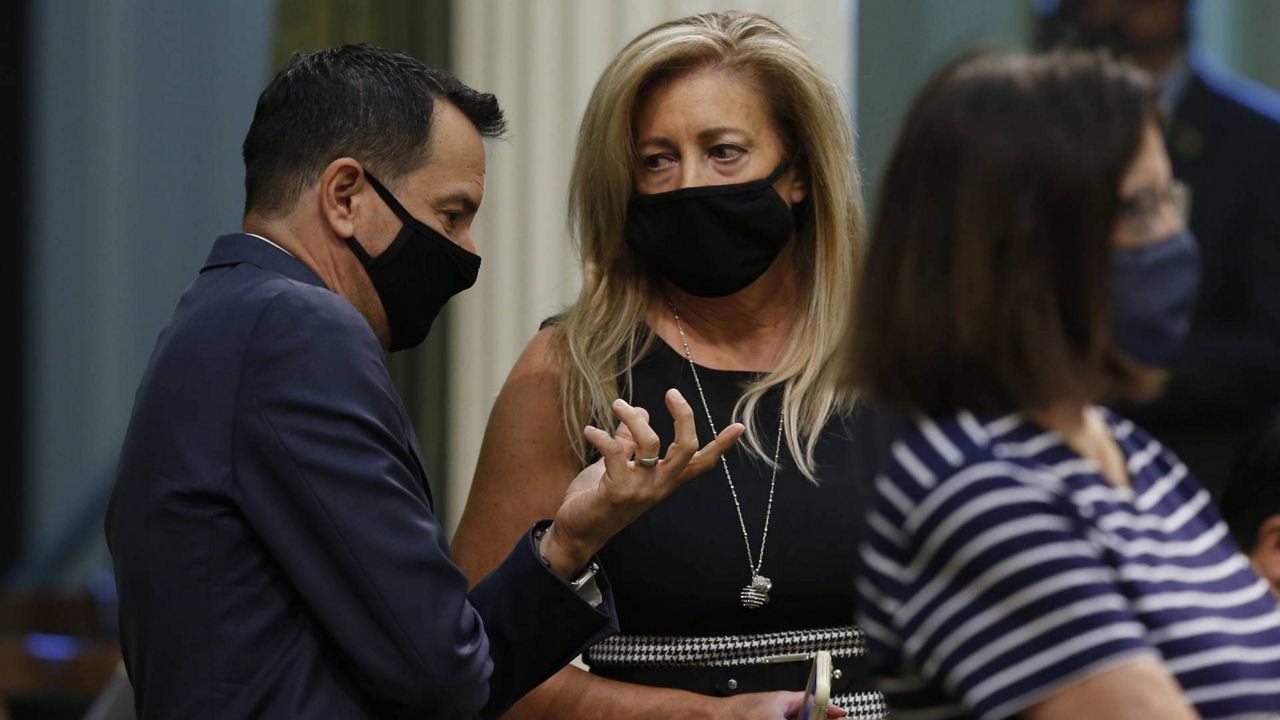SACRAMENTO, Calif. (AP) — Mending California’s coronavirus-ravaged economy and fixing a state unemployment agency that is at the center of a titanic fraud case that could exceed $2 billion are at the top of the to-do list when lawmakers resume their session on Monday.
They already have introduced numerous bills responding to the pandemic, ranging from extending protections for renters to attempting to regain some decision-making authority they had delegated to Gov. Gavin Newsom. They pushed back their usual start by one week because of the latest coronavirus surge.
What You Need To Know
- California lawmakers resume their session Monday after delaying a week due to the coronavirus surge
- They already have introduced numerous bills responding to the pandemic
- Among their most urgent priorities, lawmakers are racing to extend eviction protections that otherwise will expire January 31
- Gov. Newsom proposed a $227 billion budget on Friday that would take effect July 1
Among their most urgent priorities, lawmakers are racing to extend eviction protections that otherwise will expire January 31.
Two lawmakers are pursuing bills that would maintain a law passed months ago barring evictions for people who have been unable to pay their rent since the pandemic began in March, though they must pay 25% of what they owe since September. Assemblyman David Chiu wants to extend the protections at least through 2021, while a bill by Sen. Anna Caballero, a fellow Democrat, is proposing an extension through March.
Newsom has endorsed an extension, but did not say how long it should be. The California Rental Housing Association objected that Chiu’s long-lasting bill would force many landlords “into financial ruin.”
Newsom proposed a $227 billion budget on Friday that would take effect July 1. But he is asking lawmakers to act sooner on a number of proposals he says are necessary to help the state recover from the pandemic.
That includes giving a one-time stimulus payment of $600 to taxpayers who earn less than $30,000 annually. The effort would cost the state $2.4 billion.
Newsom also wants the state to pony up $575 million for grants to small businesses, plus millions more in loans and fee waivers. And he is proposing the state spend $2 billion to help schools pay for testing, ventilation and personal protective equipment in the hopes they will resume in-person instruction.
Legislative leaders have pledged to act quickly, but they have their own ideas on how to address those issues.
A bill by Democratic Assemblyman Phil Ting would require public schools to reopen within two weeks of their county leaving the state’s most restrictive shutdown tier. The California Teachers Association and the California Federation of Teachers oppose the idea, which they said would substitute political pressure for science in deciding when it’s safe to reopen.
A bill by Republican Sen. Andreas Borgeas, plus Caballero and Democratic Assemblywoman Cottie Petrie-Norris, would spend $2.6 billion on small business grants.
Lawmakers from both parties are eager to revamp the state’s beleaguered Employment Development Department, which at one point had a backlog of 1.6 million initial and continuing claims from workers who lost their jobs due to the pandemic.
The department has resolved more than 91% of those claims, but the backlog has been growing again as California imposed new lockdown orders last month to try to stem an unprecedented surge in coronavirus cases that threatens to overwhelm the medical system.
The department also has struggled to root out fraud. State officials have admitted they approved $400 million in fraudulent benefits to prison inmates, including some on death row.
Petrie-Norris, who heads the Assembly Accountability and Administrative Review Committee, said she would seek legislation requiring the department to crosscheck unemployment applications with inmate records to identify fraudulent claims. Senate Republican Leader Shannon Grove and GOP Assemblyman Phillip Chen said they would offer similar legislation.
“It seems like a commonsense step and seems shocking that we haven’t been doing it,” Petrie-Norris said.
State officials say the agency has a new agreement with the California Department of Corrections and Rehabilitation that allows the two entities to more broadly share information.
Petrie-Norris also is proposing an oversight advisory board for the department, as is Republican Assemblyman Tom Lackey, while Assembly GOP leader Marie Waldron wants to put a deadline on the department to process new claims.
GOP Sen. Scott Wilk teamed with Democratic Sen. Melissa Hurtado to propose that the department stop including Social Security numbers on mailed documents following a critical state audit.
Democratic Assemblywoman Lorena Gonzalez is proposing that the state allow for direct unemployment insurance deposits into recipients’ bank accounts. California is one of just three states that pay with checks or debit cards that Gonzalez said lack security precautions and have withdrawal limits. They also have been frozen at times while the state investigates the widespread fraud.
Meanwhile, Republicans and some Democrats are chafing under strict stay-at-home orders and other measures by Newsom, a Democrat who lawmakers initially granted extraordinary authority to act unilaterally early in the pandemic.
GOP Assemblyman Kevin Kiley criticized Newsom on the day lawmakers first reconvened after the November election.
“We sat back and watched as Gov. Gavin Newsom seized legislative power for himself, falsely claiming that a state of emergency, no matter how long it lasts, transforms California into an autocracy,” Kiley said.
He and fellow Republican Sen. Brian Jones co-authored three related bills that Jones said would “help bring some sanity back to how the State of California should operate: as a democratic republic, not a monarchy.”
One would limit the governor’s emergency declarations to 60 days instead of allowing them to continue indefinitely. Two other GOP Assemblymen, Jordan Cunningham and Vince Fong, have a similar measure.
Another would bar the state from revoking a business’ license for not complying with a shutdown order unless authorities could prove it caused a widespread virus transmission.
The third would hold that every child has a right to in-person schooling.



